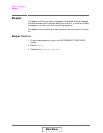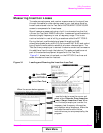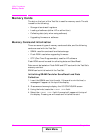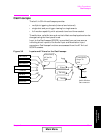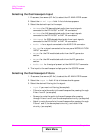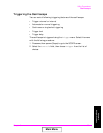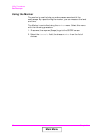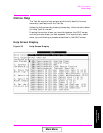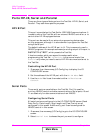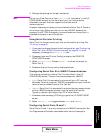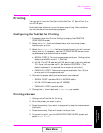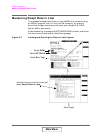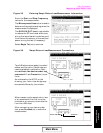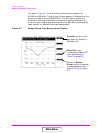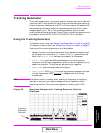
58 Chapter 3
Utility Procedures
Ports: HP-IB, Serial and Parallel
Ports: HP-IB, Serial and Parallel
There are three types of data ports on the Test Set: HP-IB, Serial, and
Parallel. They each have specific purposes.
HP-IB Port
This port is provided on the Test Set for IEEE 488.2 communications. It
is used to control the Test Set with an external IBASIC controller, or to
control other HP-IB equipped devices.
This port can be used with an external programming device when
writing programs, although it is also common to program the Test Set
using a serial port.
The default address of the HP-IB port is 14. This is commonly used in
IBASIC programs. An example command providing output to the port is
OUTPUT 714;”*RST”, which presets the Test Set.
It has two modes, which correspond to modes useful when
programming the Test Set. Talk&Listn is the normal mode. Use
Control only when you need to control HP-IB instruments external to
the Test Set.
Controlling the HP-IB Port
1. Press Shift, then the Inst Config (I/O Config) key to display the I/O
CONFIGURE screen.
2. Set the address of the HP-IB port with the HP-IB Adrs field.
3. Use the Mode field to set the mode to either Talk&Listn or
Control.
Serial Ports
Three serial ports are available on the Test Set. Port 9 is used for
printing, IBASIC control and data communications. Serial ports 10 and
11 are used only for data communications from IBASIC.
Configuring Serial Ports
All serial ports are configured via the I/O CONFIGURE screen. Baud
Rate, Parity, Data Length, Stop Length and Flow Control are all
configured in this screen. Additionally, port 9 can be configured for
IBASIC control in this screen.
1. Press
Shift, then Inst Config (I/O Config) to go to the I/O CONFIGURE
screen.
2. Select Serial Port to choose the port you want to configure.
Main Menu



